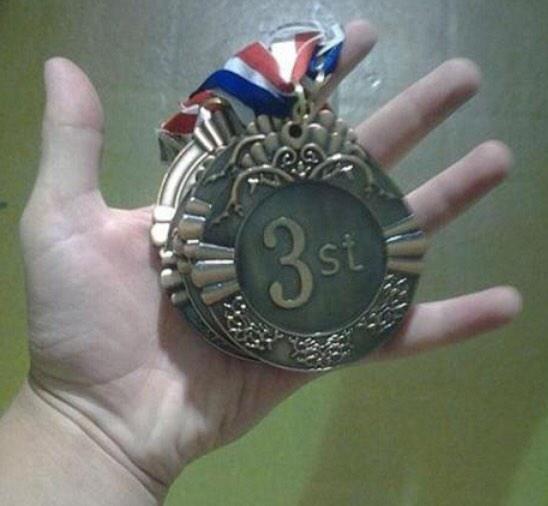One of the
constant criticisms I hear in regards to my writing is that everything I write
is all well and good for an experienced trainee “but beginners shouldn’t”
X. It’s all well and good for an
experienced trainee to focus on technique rather than form, for an experienced
trainee to train in a weakened state, for an experienced trainee to hit stupid
dropsets and stripsets, for an experienced trainee to keep pushing volume until
they break, etc etc, but a beginner shouldn’t.
There are SO many guardian angels for beginners out there that it’s a
goddamn miracle how many weak beginners are out there spinning their wheels for
years. Where are the results for the
hard work of all these valiant guardians?
Why, with so many helpful, watchful eyes out there dictating what is
good and not good for beginners, do we still see SO many beginners struggling
with just the basics? It’s because your
mother henning has made them soft, weak, and fearful. You’ve spent so much time preoccupied on what
beginners SHOULDN’T do that you’ve completely forgotten exactly what it is that
they SHOULD do.

It sounds better when he says it
First, let’s
start with the obvious: I don’t write for beginners. I don’t write for anyone but myself. I’ve said many times that this blog is for
me; it forces me to write about 1000 words a week and get rambling thoughts out
of my head and onto paper, much like what is happening here. The cautionary tale for beginners is
unwarranted, especially when considering that my sphere of influence is GREATLY
diminished, as I have minimal social media profile nor do I engage in
self-promotion. All of THAT aside, the
warnings are STILL silly, because they seem to operate from people who must
have forgotten what it was like to be a beginner.
I haven’t
forgotten. It’s been 19 years and I still
remember. I still remember saving up
cash to buy a standard bench and dumbbell set from Play it Again sports at age
14, putting it in my backyard with a tarp over it to protect it from the
elements, and doing bench and dumbbell curls 5-7 days a week on it. I still remember that bench giving me the
confidence to train in my high school weight room, where me and my buddies
would take turns trying to max out on every machine and barbell lift
possible. I still remember slinging iron
with wild abandon, not having any idea that there was a “right” pair of shoes
to wear, how to brace, optimal training frequency, protein timing, MRV, low testosterone
markers, fatigue management, etc etc.
And I STILL remember that, after a few years of that, people started considering
me big and strong.

You gotta keep in mind that, as you keep training, the standards keep getting worse
I STILL
remember getting into my college weight room, which was a dank little poorly
outfitted afterthought that was STILL twice the size of my high school weight
room, my eyes lighting up, and deciding I was going to get “serious” with my
training and start a bodypart split.
Yes, the same kinds of splits that the internet SWEARS “don’t work”. I remember gaining 20lbs in college while
STILL having no idea what I was doing: just training hard, training often, and
eating very well. How did you forget?
How did you
forget that it was effort, intensity and consistency that got you to where you
are? How did you forget that people had
been getting big and strong for decades without ANY real knowledge of training? How did you forget that what is now called “bro-science”
was the stuff that WORKED? And now, here
you are, saying that ADVANCED trainees can get away with training hard, often
and for a long time, but that BEGINNERS need to do something super duper
special? That beginners are just fragile
little snowflakes that will rupture the instant they do anything outside of the
party approved method for training?

Oh hey, a new one

Oh hey, a new one
“But if they
fail, they’ll get discouraged and quit!”
Let them! Folks, anyone who is going
to quit the instant they meet resistance is simply not long for this
activity. It does you no good to coddle,
protect and “save” them from themselves.
If the ONLY way they’ll stay on the path is by encountering nothing but
success along the way, not only are they simply not going to last, but they’re
also going to miss out on the ACTUAL value of training: learning how to
overcome adversity. And I say this understanding how sheltered it is to say
such a thing, but that’s the point. For
many of you, this is going to be the ONLY adversity you really have to
overcome, and that is especially true for those beginners that are ready to
quit as soon as they encounter failure.
If your first instinct is to quit, follow that instinct. Find another hobby. It’s not for everyone, and that’s fine. I quit guitar for the same reason. But if you have some tenacity and wherewithal
to hit a wall and decide to figure out how you’re going to get past it, you
might just make it.
There are no
restrictions or limitations on what a beginner should or shouldn’t do. They should absolutely copy the routines that
are too high in volume, they should train like people far more accomplished
than themselves, they should push their limits too far, burnout, fail hard, and
crash. The ones that survive are going
to be pretty awesome. “But that’s
survivor bias!” I certainly hope
so. Not everyone is going to succeed,
and it’d be MUCH better for you to figure that out at the start of your journey
rather than be 5 years deep because you followed every possible path that
WOULDN’T lead to failure only to discover that the absence of failure isn’t
success: it’s simply ambivalence. But
hey, maybe, just maybe, there are a LOT more survivors than failures among the
population, and all we have to do is LET them go out on their own to figure it
out. Maybe just hitting the weight room
hard for a few years will get you some results, the same way it gets results
for thousands of high school kids every single year. Maybe we’ll be surprised from the results,
and maybe we’ll start saying that the only thing beginners shouldn’t do is go
online and listen to every guru that comes along with minimal accomplishments
and a lot of youtube videos.

I genuinely have no idea who this is, but he seems to pop up a lot on the topic of lifting

I genuinely have no idea who this is, but he seems to pop up a lot on the topic of lifting
All I can do
is hope.





